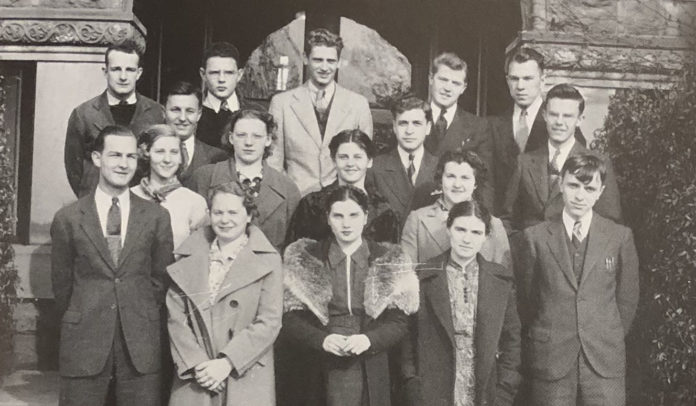“It is now up to the 1937-1938 student body of the college to make a success or a failure of our newest venture, student government,” according to the 1937 edition of SRU’s former yearbook, the Saxigena.
This year, the Slippery Rock Student Government Association (SRSGA) is reflecting on the previous senates and engaging with alumni as part of their plans to institute long-term changes in the organization.
The 80-year anniversary occurs as SGA underwent two recent structural changes. Concerning the senate, Kennedy Moore is the first vice president of diversity and inclusion, an elected position formed to oversee the social justice committee.
The social justice committee functioned as an ad-hoc committee starting in 2016 before achieving a standing status in February 2018. Victoria Davis served as the chair of the committee last year prior to the establishment of the vice president position.
“She really advocated to help to get that position established officially recognized by SGA as an elected position and a standing committee,” Wendy Leitera, SGA advisor and business manager, said.
In 2014, a board of directors was created to oversee SGA. The board has nine voting seats comprised of SGA President Dallas Kline, SGA Vice President of Finance Logan Tupper, two students-at-large and five alumni. Two faculty members also sit on the board of directors, but in a non-voting capacity.
“It added another layer of oversight as well as engagement between students and alumni,” Leitera said. “I think that was really important.”
To celebrate their 80th anniversary, SGA will be hosting an alumni student leader reception on Oct. 12 in the Smith Student Center Suite. A similar reception was held last year after alumni approached SGA.
“There are groups that kind of informally meet together when they come back, but last year was the first time since I’ve been here that they’ve made a coordinated effort to do that,” Leitera, who joined SGA in September 2013, said.
Leitera added that SGA is expecting more of the young alumni to attend the event.
“We’re expecting a lot more of the recent alumni,” Leitera said. “But that’s another goal, too, to keep the young alumni really engaged with the university.”
Nicole Dunlop, SGA vice president of internal affairs, said that SGA’s engagement with alumni and the organization’s participation in conference provides new perspectives.
“It’s going to put everything in perspective,” Dunlop said. “At the conference, talking to all the other SGAs, it helps giving you the bigger picture of things. I think the alumni will really help me get the bigger picture for SGA and see how we can improve going forward.”
With recent elections of eight senators and a parliamentarian, Kline said that the planning and research about a senate restructure will begin soon. The current senate is organized according to residence with the exception of the freshmen and graduate senator positions. According to Leitera, the SGA senate structure has remained the same for at least five years.
“They are definitely open to all options,” Leitera said. “The more people they talk to, I think the better it’s going to be for them to make their recommendation and do their homework when they’re looking at ways different universities are structured.”
With the SGA experiencing few changes in recent years, Kline said that alumni engagement will part of the process for determining a future senate structure.
“We can talk to them about what worked for them because there were very similar positions throughout the years,” Kline said.
In addition to investigating more substantial changes within the senate, SGA is looking at previous traditions to bring back. According to Kline, SGA is looking to possibly use capital budget or reserves finances to purchase a legacy gift. Bob Watson, member of the SGA board of directors and former vice president of student affairs, told Kline that giving a gift was a SGA tradition from the ‘50s until the late ‘70s.
“We don’t just want to say ‘SGA is giving a gift,’” Kline said. “We want it to be something students want or need.”
While the more substantial changes within SGA will not take effect during the current senate’s term, Kline looks forward to seeing the long-term changes of this senate’s work.
“It’s cool to be part of history,” Kline said. “Regardless of what we get done this year for SGA, hopefully people will continue to follow in our footsteps so 20 years down the road, we can see what we built and how it’s impacted them.”








